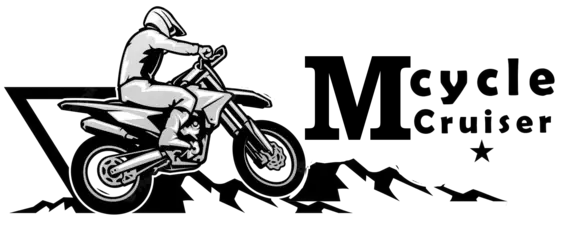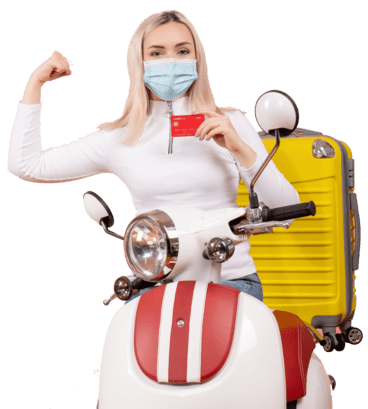Embarking on your motorcycling journey requires preparation beyond safety measures. It’s essential to equip yourself with certain items that could prove to be lifesavers during your rides. Below, we’ve compiled a list of must-carry items for motorcycle riders.
Motorcycle Tools
Basic Motorcycle Toolkit
Having a basic motorcycle toolkit with you on your ride can save you from unexpected situations. This toolkit should include a multi-tool with pliers, a screwdriver, and a knife, as well as an adjustable wrench, a tire pressure gauge, and a set of hex keys. If possible, carry a compact tire repair kit as well. These tools can help you perform minor repairs and adjustments to your bike on the go. Always remember to pack them in a compact, waterproof bag to keep them safe and dry.
First Aid Kit
An essential for any trip, a first aid kit is particularly crucial for motorcycle riders. This kit should contain essential items such as bandages, antiseptic wipes, tweezers, a pair of gloves, and safety pins. A small roll of medical tape and a pack of gauze pads could also come in handy for dressing wounds. Additionally, include common over-the-counter medications such as pain relievers, anti-allergy tablets, and anything specific to your personal health needs. Consider packing a compact emergency blanket as well, which can be vital in case of accidents or sudden weather changes. Remember, the goal is not to prepare for every possible emergency, but to have essential items that can help manage minor injuries or ailments while on the road.
Hydration and Snacks
Keeping yourself hydrated and fuelled is crucial, especially during long rides. Carry a water bottle and energy-rich snacks like energy bars or dried fruits. Remember to take regular breaks to replenish your body.
Water Bottle
Carrying a high-quality, insulated water bottle can ensure you have access to cold or warm water during your ride. Select a bottle that fits snugly in your bike’s cup holder or your backpack, and remember to refill it during your stops.
Energy Bars
Energy bars can be a quick and convenient source of nutrition on the road. They’re lightweight, compact, and come in a variety of flavors. Opt for bars that are high in protein and fiber to provide sustained energy during your ride.
Dried Fruits
Dried fruits like apricots, figs, or raisins are an excellent choice for a light, nutritious snack. They are high in natural sugars, providing a quick energy boost, and they don’t take up much space in your pack. As a bonus, they have a long shelf life, making them suitable for extended trips.
Spare Key
Always carry a spare motorcycle key with you. Losing your key during a ride can be a significant inconvenience and a potential security risk.
Spare Key Storage
It’s important to store your spare key safely and securely. A good practice is to keep it separate from your main key, possibly in a hidden pocket of your backpack or in a secret compartment on your bike. Ensure it’s easily accessible but not in an obvious or easily noticeable place.
Importance of a Spare Key
Having a spare key can be a real lifesaver, particularly on long road trips. A lost or broken key can leave you stranded, turning an exciting ride into a stressful situation. Therefore, carrying a spare key eliminates this risk, offering peace of mind and minimizing disruptions to your journey.
Rain Gear
Always be prepared for unpredictable weather changes. Carry lightweight and packable rain gear to protect yourself from sudden showers.
Rain Jacket and Pants
A quality rain jacket and pants are essential components of your rain gear. They should be waterproof, wind-resistant, and breathable to keep you dry and comfortable during a downpour. Consider high-visibility colors or reflective details to enhance your visibility on the road in adverse weather conditions.
Waterproof Gloves and Boots
Waterproof gloves and boots are also critical to keep your hands and feet dry and warm. Wet hands can compromise your grip on the motorcycle handles, while wet feet can lead to discomfort and distraction. Consider gloves and boots that not only offer water resistance but also provide enough insulation for colder weather.
Emergency Contact Information
Note down your emergency contact information and any significant medical information on a card. Keep this card in your wallet or somewhere easily accessible.
Emergency Contact Card
An emergency contact card should include the phone numbers of your close family members or friends, as well as your doctor, if applicable. It’s a good idea to add the number of a reliable towing service as well. In case of an accident, this information will be crucial for first responders and other individuals who might be helping you.
Medical Information
Your medical information should include any chronic conditions you have, medications you’re taking, allergies, and your blood type. This information could be invaluable to medical professionals providing treatment in case of an accident. It’s recommended to have this information written in a clear, legible manner to avoid any misunderstandings. Whenever your medical condition changes, remember to update this information.
Even the most experienced riders can face unforeseen circumstances during their rides. Carrying these essential items can make you better prepared to handle such situations and ensure a more pleasant and safer ride.


